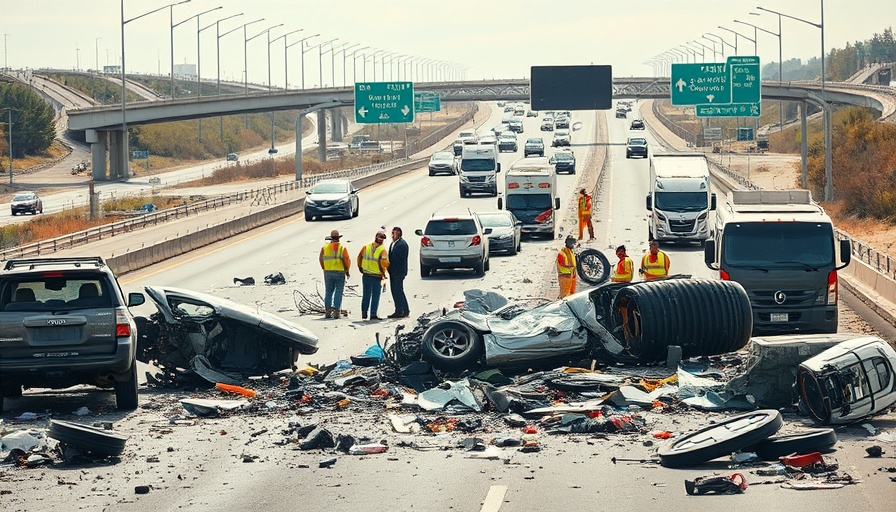
The Tragic Legacy of Trevor Heitmann
In a heartbreaking development, the family of Trevor Heitmann, the YouTube personality known as "McSkillet," is nearing a settlement regarding the disastrous consequences of his actions nearly five years ago. On August 23, 2018, Heitmann drove his McLaren sports car over 100 miles per hour in the wrong direction on Interstate 805, resulting in a tragic collision that killed both himself and two innocent victims, Aileen Pizarro and her 12-year-old daughter, Aryana Pizarro. Heitmann's legacy as a YouTube star is forever tainted by this incident, serving as a grim reminder of the effects of mental health crises.
The Settlement and Its Implications
Following extensive litigation, the San Diego City Council is set to approve a settlement that compensates the Pizarro family for their devastating loss. The settlement is reported to be around $6.125 million, with significant portions allocated to Aileen's father and son. This compensation, though substantial, cannot assuage the profound loss experienced by the Pizarro family. Furthermore, the settlement includes provisions to amend San Diego police policies regarding how mental health calls are handled, reflecting a necessary shift in the approach to similar situations in the future.
Understanding the Mental Health Crisis
The circumstances leading up to the crash highlight serious concerns about mental health support and responsiveness. On the morning of the tragedy, Heitmann's parents reached out to local police, expressing their deep concerns over their son's mental state, noting he was experiencing manic behavior and was a danger to himself. Despite the urgency of the situation, police officers did not assess Heitmann nor communicate directly with him. This negligence has ignited debates about the responsibilities of law enforcement in handling mental health crises effectively, an issue that remains pressing in communities across the nation.
Community Reactions and Broader Implications
The ramifications of this tragedy go far beyond the individuals involved. San Diego's decision to settle reflects a growing awareness of the critical need for improved mental health interventions and policies. Activists and community leaders are arguing for comprehensive training programs for police departments nationwide, ensuring that officers are well-equipped to deal with situations involving individuals in mental distress.
Reassessing Mental Health Interventions
Many argue that the Heitmann case underscores a systemic issue. When mental health emergencies are mismanaged, the consequences can be catastrophic. The Pizarro family's experience serves as a painful reminder of how vital it is for families to receive timely and effective support during crises. It's a call to action for better resources within our mental healthcare systems, as many families endure similar challenges daily.
Learning from Tragedy: Steps Forward
Efforts to improve police response to mental health emergencies can pave the way for a more humane approach. Enhanced training in crisis intervention, access to mental health professionals, and community outreach programs can facilitate more positive outcomes. These systemic changes can help prevent similar tragedies where individuals in crisis feel lost and misunderstood.
The Importance of Conversations Around Mental Health
As this case progresses toward a settlement, it emphasizes the necessity for ongoing conversations about mental health awareness and resources within San Diego and beyond. Communities must work together to ensure that people in crisis receive the help they need—even before they reach the boiling point.
Conclusion: A Blessing Amid the Ashes
The impending settlement represents a step toward justice for the Pizarro family and a recognition of the broader societal issues intertwined with mental health crises. However, it also serves as a wake-up call for individuals and communities. Addressing mental health in a proactive and compassionate manner not only saves lives but could also transform futures. With ongoing dialogues and necessary reforms, there is hope to turn this tragic legacy into a catalyst for change.
As we reflect on this tragic event, it’s vital for individuals to advocate for mental health resources and support systems within their own communities. Together, we can create environments where mental health is prioritized, ensuring that crises are managed effectively, safeguarding families and lives.
 Add Element
Add Element  Add Row
Add Row 



 Add Row
Add Row  Add
Add 


Write A Comment